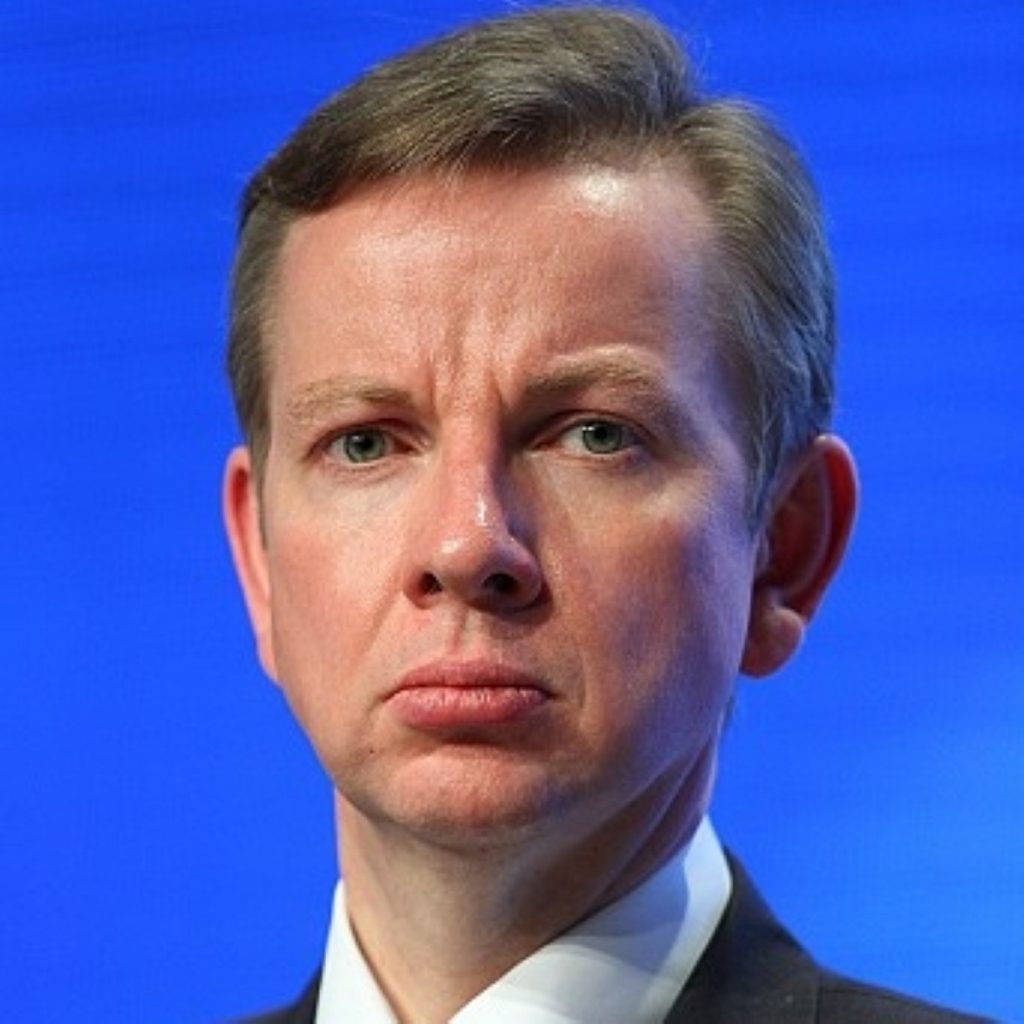Gove hails free schools success
By Phil ScullionFollow @PhilScullion
A defiant Michael Gove has insisted the government's free schools programme is on track.
The education secretary set out his vision for the future of free schools at a Policy Exchange event this morning.
Speaking prior to the event he championed the success of the government's programme: "Our critics said it was impossible to open a school in little more than a year. Several will open this September.


"They told us that schools wouldn't want to become academies. They are converting at a rate of two every school day."
Two hundred and twenty seven of the 281 applications received are for mainstream schools and 56% of those came from local groups.
Mr Gove said that the number of applications fell into line with the government's expectation, and that there were some extremely promising proposals.
There is a rough parity between the number of primary and secondary school applications.
The application process ran from 17th March to 15th June this year. Last year's process ran until 11 February 2011 and attracted 323 applications.
"The rationing of good schools must end. Our reforms are about creating a generation of world-class schools, free from meddling and prescription, that provide more children with the type of education previously reserved for the rich," the education secretary added.
Figures this year show that the number of independent schools wishing to move across to the state sector is down, standing at 18% compared to 35% of applicants last year. Faith schools have also decreased, with 29% of applicants compared to 40%.
Out of the 323 applications received last year 32 are being progressed. These include two which are located in the most deprived parts of the country.
Christine Blower, general secretary of the National Union of Teachers, the largest teachers' union, today criticised Mr Gove for "boasting", and questioned the quality of the bids being made.
She said: "Of course the schools approved are opening in less than a year. They are doing so because they are not subject to the normal controls such as planning and building regulations that would be in place for a regular state school.
"There has also been a disproportionate amount of help and investment of resources into supporting these few schools.
"It is shameful that at a time of huge cuts the government is squandering public money on a few 'trophy schools'. It should be concentrating on supporting existing state schools which educate the overwhelming majority of pupils, not wasting scarce resources on a few schools which only a tiny minority of pupils will benefit from."
Somewhere between ten and 20 schools are expected to open in September, having taken 15 months to set up after the initial application.

